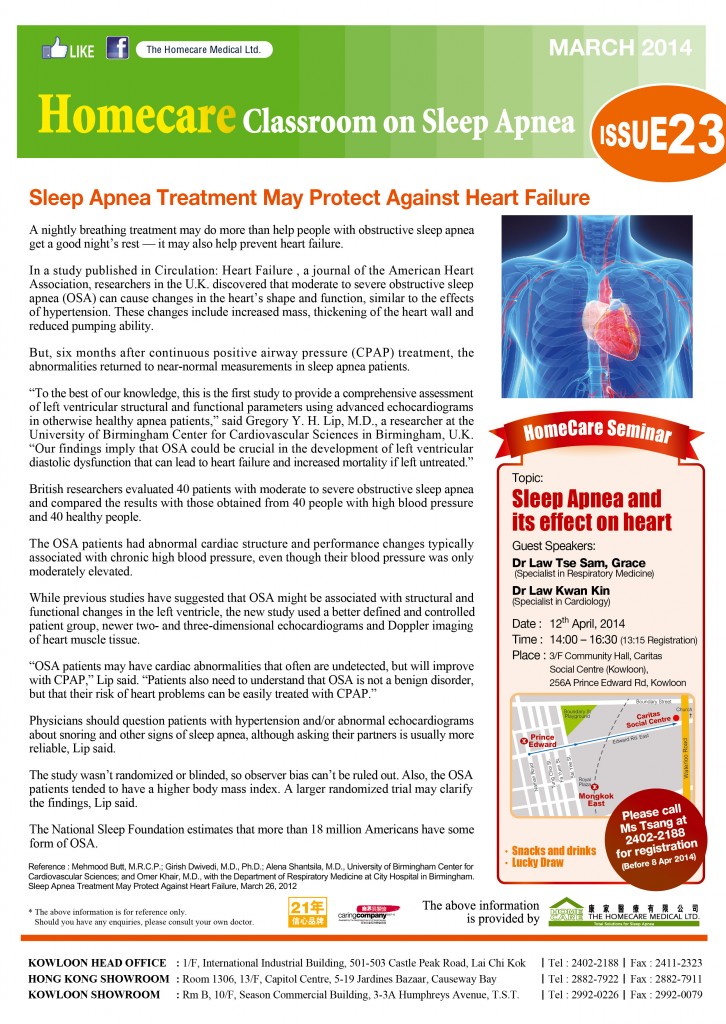Issue 23 – Sleep Apnea Treatment May Protect Against Heart Failure 
Sleep Apnea Treatment May Protect Against Heart Failure
A nightly breathing treatment may do more than help people with obstructive sleep apnea get a good night’s rest — it may also help prevent heart failure.
In a study published in Circulation: Heart Failure , a journal of the American Heart Association, researchers in the U.K. discovered that moderate to severe obstructive sleep apnea (OSA) can cause changes in the heart’s shape and function, similar to the effects of hypertension. These changes include increased mass, thickening of the heart wall and reduced pumping ability.
But, six months after continuous positive airway pressure (CPAP) treatment, the abnormalities returned to near-normal measurements in sleep apnea patients.
“To the best of our knowledge, this is the first study to provide a comprehensive assessment of left ventricular structural and functional parameters using advanced echocardiograms in otherwise healthy apnea patients,” said Gregory Y. H. Lip, M.D., a researcher at the University of Birmingham Center for Cardiovascular Sciences in Birmingham, U.K.
“Our findings imply that OSA could be crucial in the development of left ventricular diastolic dysfunction that can lead to heart failure and increased mortality if left untreated.”
British researchers evaluated 40 patients with moderate to severe obstructive sleep apnea and compared the results with those obtained from 40 people with high blood pressure and 40 healthy people.
The OSA patients had abnormal cardiac structure and performance changes typically associated with chronic high blood pressure, even though their blood pressure was only moderately elevated.
While previous studies have suggested that OSA might be associated with structural and functional changes in the left ventricle, the new study used a better defined and controlled patient group, newer two- and three-dimensional echocardiograms and Doppler imaging of heart muscle tissue.
“OSA patients may have cardiac abnormalities that often are undetected, but will improve with CPAP,” Lip said. “Patients also need to understand that OSA is not a benign disorder, but that their risk of heart problems can be easily treated with CPAP.”
Physicians should question patients with hypertension and/or abnormal echocardiograms about snoring and other signs of sleep apnea, although asking their partners is usually more reliable, Lip said.
The study wasn’t randomized or blinded, so observer bias can’t be ruled out. Also, the OSA patients tended to have a higher body mass index. A larger randomized trial may clarify the findings, Lip said.
The National Sleep Foundation estimates that more than 18 million Americans have some form of OSA.
Reference: Mehmood Butt, M.R.C.P.; Girish Dwivedi, M.D., Ph.D.; Alena Shantsila, M.D., University of Birmingham Center for Cardiovascular Sciences; and Omer Khair, M.D., with the Department of Respiratory Medicine at City Hospital in Birmingham.Sleep Apnea Treatment May Protect Against Heart Failure, March 26, 2012

